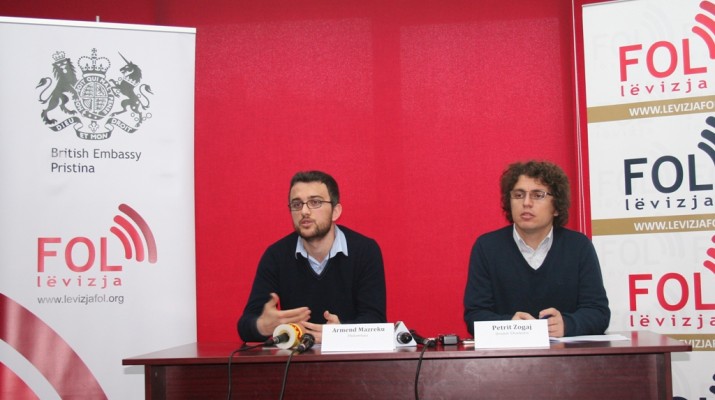Anti-Corruption Strategy: Neither a strategy nor against corruption
Prishtina, December 4, 2011 ” Today movement FOL presented its analysis on “The weaknesses of the Anti-Corruption Strategy 2009-2011”.
Executive Director of the Movement FOL Petrit Zogaj, said that “the high level of corruption in the country is harming the interests of the citizens of Kosovo”. Further, he claimed that the report of Transparency International confirms that the institutions did not fight corruption, for Kosovo is ranked two places below.
Meanwhile, policy researcher in this movement, Armend Mazreku, said that “anti-corruption strategy 2009-2011” has been very little a strategy, but worse than that, it was even less in the fight against corruption “. Further, he stated that “even this strategy was drafted within the model of bad governance, which consists only in having these strategies, but not implementing them.”
Furthermore, Mr. Mazreku said that “the strategy was characterized by multiple vulnerabilities, thus, it didn”t reduce corruption in public institutions.”
According to the findings of this analysis the main weaknesses that have accompanied the anti-corruption strategy 2009-2011 are: lack of studies, research and preliminary reports on the characteristics, nature and causes of corruption, the lack of involvement of civil society in the drafting of Anti-Corruption Strategy and Action Plan 2009-2010; a comprehensive approach: discrepancy between Anti-Corruption Strategy and Action Plan 2009-2011; the lack of seriousness in determining time of anti-corruption measures and their financial costs, the lack of supervision of implementation of Anti-Corruption Strategy and Action Plan 2009 -2011 by the Anti Corruption Agency and, insufficient implementation of objectives and operational measures against corruption.
However, this analysis addresses the following recommendations as well: Preliminary researches should be conducted on the characteristics, nature and causes of corruption in Kosovo: An integrated analysis of the anti-corruption legislative package should be conducted; identifying sectors that are most affected by corruption – with particular attention on public procurement; defining objectively the deadline of implementation of concrete actions provided by Action Plan: Defining the approximate financial cost to implement the measures provided by Anti-corruption Strategy and Action Plan 2012-2016; strengthen the supervision of Anti-corruption Strategy and Action Plan 2012-2016 by the Anti-corruption Agency and Civil, Promotion of the Strategy as a strategic document – so that, all institutional policies, and especially government ones, to originate from such a strategic document.
